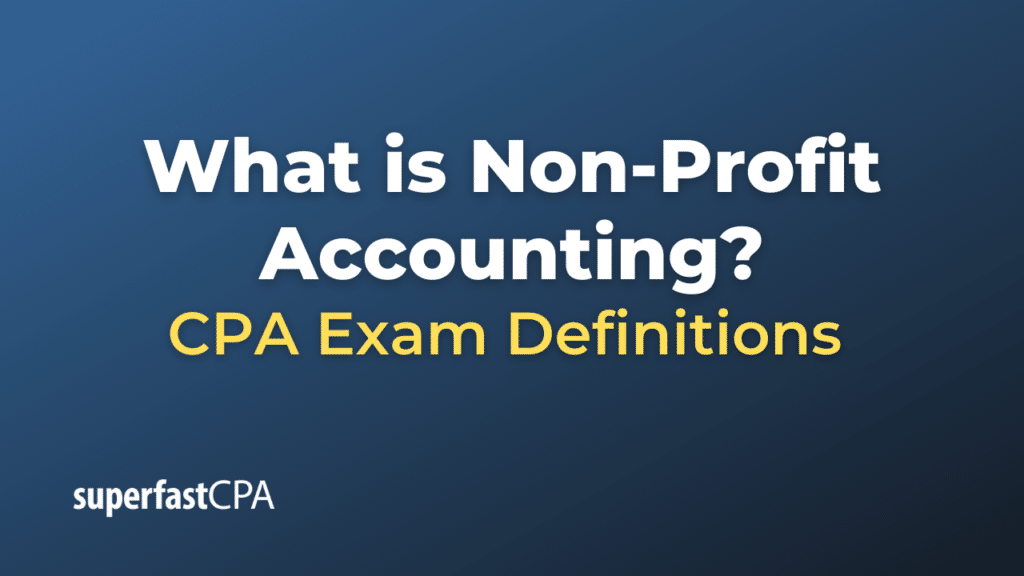Non-Profit Accounting
Non-profit accounting, also known as fund accounting, refers to the specific system of financial record keeping and reporting that non-profit organizations use. Unlike for-profit businesses, non-profit organizations are not focused on increasing shareholder value but rather on achieving their mission and ensuring their financial sustainability.
Here are some key elements that differentiate non-profit accounting:
- Fund Accounting: Non-profit organizations often use a method called fund accounting. This involves tracking and reporting on different pools of money, or “funds,” that are each designated for specific purposes. These funds can be restricted (the donor specifies how the money should be used) or unrestricted (the organization can use the money as it sees fit).
- Focus on Accountability: Non-profit accounting is focused on accountability rather than profitability. Non-profit organizations must demonstrate that they are using their resources effectively to fulfill their mission and meet the expectations of their donors, members, and the public.
- Different financial statements: Non-profit organizations produce different financial statements compared to for-profit entities. Instead of a balance sheet, they produce a “statement of financial position.” Instead of an income statement, they produce a “statement of activities” that shows changes in their net assets. They also produce a “statement of cash flows” and a “statement of functional expenses,” which shows how expenses were allocated between program services and supporting services.
- Tax-Exempt Status: Non-profit organizations are often exempt from income taxes, but they must meet certain requirements to maintain this status. They must demonstrate that they are operating primarily to further their charitable, educational, scientific, religious, or other tax-exempt purpose. They must also follow specific rules about what types of income they can earn and how they can use their funds.
Non-profit accounting can be complex and requires a good understanding of the unique rules and principles that apply to non-profit organizations. This is why many non-profits hire accountants who specialize in this area or use specific non-profit accounting software.
Example of Non-Profit Accounting
Let’s consider a hypothetical example of a non-profit organization called “City Library Foundation,” which receives funds from different sources and uses them for specific purposes.
- Fund Accounting: The City Library Foundation receives a $1 million donation from a benefactor who specifies that the money should be used only for buying new books. This is a restricted fund. The organization also receives $500,000 from various small donors who do not specify a use for their donations. This is an unrestricted fund. The organization must track and report these two funds separately to ensure the restricted fund is used as intended.
- Focus on Accountability: The City Library Foundation needs to show that it’s using its resources efficiently. It could do this by tracking metrics like the number of books purchased per dollar or the number of library visitors served per dollar.
- Different Financial Statements: The City Library Foundation will produce a statement of financial position showing its assets (like cash, investments, and books) and liabilities (like unpaid bills). It will also produce a statement of activities showing changes in its net assets over the year. This might include income from donations and expenses for buying books and running the library.
- Tax-Exempt Status: The City Library Foundation operates primarily to promote literacy and education, which are tax-exempt purposes. Therefore, it does not pay income taxes. However, it must follow rules about how it uses its funds. For example, it cannot distribute profits to individuals or engage in certain types of political activity.
To manage these accounting requirements, the City Library Foundation may hire a specialized non-profit accountant or use non-profit accounting software. This ensures the organization maintains its financial integrity and tax-exempt status, meets donor expectations, and efficiently pursues its mission of promoting literacy and education.













